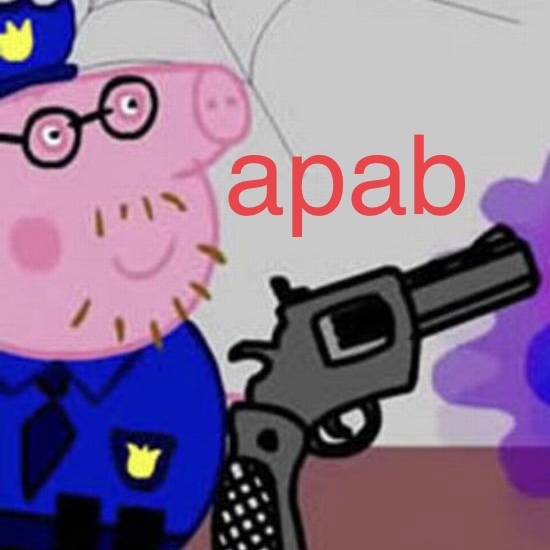deleted by creator
Isn’t that why FOSS survives as a model and is encouraged so much, though, so there is something to enclose and charge bullshit fees for once you fork it?
Not all licenses allow charging for forks. You can charge for your services always. And you can charge for code that is all your own. But, only certain licenses allow you to actually fork and charge for it without sharing those contributions. And many might not even really consider those licenses to really be FOSS.
It’s particularly popular for startups to use to bootstrap their tech company and build cred shortly before they reach the “we have to actually turn a profit” phase, at which point the bean counters try to squeeze every bit for a nickel. Once they have marketshare, they say, “we are helping the competition by releasing this!” and abandon the things they actively maintain.
There is also a direct benefit for open sourcing: you can get other people to debug and improve your software for free. They go the enclosure direction once they want to squeeze their customers for more money, e.g. closing the source code and charging $x per use of the software to their service clients.
Once they’re a monopoly, companies can swing back to the open source direction because they have no competitors to worry about and can just get free dev work and good will out of it.
Microsoft loves this. They bought GitHub for a reason
My best guess about their purchase is that they wanted to do a bunch of copyright infringement of code hosted on GitHub to train their language models. Are you thinking there’s also a motivation to get free dev work another way, too?
We could seize the means of production
That may be true, but there is (usually) also an upside. Any fixes and modifications must be shared back. Thank you copyleft licenses. Thank you GPL.
Man, I’m so glad that the Border Patrol is using my tech to violently abuse refugees! It’s extra awesome that they sent back some modifications! I love it when I get help from *checks notes… fucking Nazis.
This is a joke, right? Cool beans that the people who decided to use the code for nefarious purposes helped make it cleaner. /s
Seriously, that’s really pathetic for an “upside.”
While we might not agree with immigration policy and power abuse, it’s hard to put moral limitations on who gets to use our software. While the example you gave is far from trivial.
The second we say someone can’t use our software for whatever reason, that’s the second the software is no longer truly free. It’s same with Open data.
If you set in writing that your software can be used by anyone, then you also take away the power of those in high places to interpret the licence in a discriminatory way.
Negativland helped create a Creative Commons license whose purpose was literally that. You didn’t have to give attribution to the original artist, but you were disallowed from using the work for profit/in advertisements/et cetera. The issue is backwards copyright law that says the only way copyright should be distributed is through ownership and capital. We need a copyright law that respects the original creators intent, if they don’t want it used commercially/in government. Not all of us are Tom Waits (who famously refused to license his work for commercial purposes) and happen to have the money to fight misuse of our creations in court.
Yes, I agree. And Creative Commons are a great example of peoples’ control over their work. My argument is that it wont be ‘the original artist’ who gets to interpret the licensing terms.
If I may take your example of border patrol abusing immigrants with your software. And I’m sorry for the trivial example beforehand.
Let’s say you put in licensing terms: “This software may not be used to endanger peoples lives and/or livelyhoods”. And software is used by both Border Patrol and the immigrants to protect/cross the border.
Both parties come before a judge, accusing the other party of misusing your software. Border patrol says the immigrants are endangering american people with crime etc. ,and the immigrants accuse the border patrol of violent beatings.
In whose favor would a judge decide?
P.S.: thanks for the link. I’m a huge Tom Waits fan, and had no idea about the voice-theft.
Both parties come before a judge, accusing the other party of misusing your software. Border patrol says the immigrants are endangering american people with crime etc. ,and the immigrants accuse the border patrol of violent beatings.
I agree with this except the refugees categorically aren’t using software if they’re at our borders with empty hands. The only argument that would matter in the court was whether or not the CBP was breaking the software license. The refugees aren’t in a position to use the technology, and as such, arguments about whether or not they’re violent are immaterial to the legal question of whether the Border Patrol broke the license and illegally used the software.
While I agree that in the end, it’s a decision by the courts, you’re still detailing the answers to how it would be handled based on how copyright currently functions and I’d wager with a re-organized and re-written copyright law, you’d have a lot fewer instances of being able to argue that.
I mean, we have court cases that never make it anywhere all the time based simply on the idea “standing.” Hell, our legal system doesn’t even respect the idea of it even though they reject it half the time. Conservatives wholesale made up someone refusing to make web pages for a “gay couple” who turned out to be a straight guy who never wrote such an email and the Supreme Court swallowed it and said “fuck standing, we’re giving him standing because we’re corrupt fucking assholes.”
So what I’m talking about includes legal system reform as well, which would preclude a lot of ability to waste developers time by illicitly using their work and then taking them to court over it.
HPE for example write on every IPMI and Firmware page that they are not allowing the use of the software in fields related to ABC weapon systems.
“must” is a strong word here, and the conditions which trigger “must” are amazingly narrow.
The GPL is not as fearsome as people make it out to be, and I wish it was. It’s a very capitalist license, and there are ways around its provisions.
Those of us who work in tech need to have a serious reckoning about our contributions to this sort of dynamic and the sort of social environment it incentivizes us to gravitate towards, maintain, and create.
There also needs to be some discussion of class in tech and how the bull pen tech support grunts are going to have very different incentives from the senior technician making 7 figures on top of mad stock options.
Nobody listened to Negativland enough when it mattered. They helped develop Creative Commons licenses and were pretty much the spearhead for the “no attribution but you can’t use it for commercial purposes” license. I’m not sure if that one even exists anymore, but it seems like Creative Commons is also pretty dead-in-the-water these days. They understood the need to define ownership and be able to say “No, corporations can’t just use it freely.”
Software is like a flame. Sharing it by lighting another fire doesn’t take away from the original flame.
^ This guy Jefferson’s tapers.
“Bricks are used in most corporate structures… Brick-layers are boot-licking capitalist class-betrayers!”
What a stupid take…
Yeah agreed, you can use that logic with just about anything
you can use that logic with just about anything
wheat feeds the workers, which do work, transferring wealth to the top, wheat is a hyper capitalist class-betraying crop!
this was never not a Pascal’s muggingthats not exactly what I ment
They are also who mostly finances the development of very many Foss products. So still better than closed source, as small companies and the general public can also use those products.
On the other hand, I’d wager that any given person who uses Linux daily at work is far more likely to own a stake in their company than the average worker.
My Linux laptop is also literally my means of production, which I own. Karl Marx never predicted this.
Marx did talk about individuals owning the means of production. For example farmers or craftsmen owning their tools before capitalism. Marx talked about the means of production being shared under communism and not owned by one specific person or capitalist. If anything Marx predicted FOSS lol.
Except this is really reductionist and ignores there is very little “open hardware” out there, and few people producing it. So while you might have access to the “means of production” through software, you absolutely do not in hardware.
Great that software tools are in the hands of the worker, but the means to fabricate the machines that code runs are definitively not owned by workers. (To say nothing of issues with getting drivers for a DIY motherboard working with Linux long-term.)
Also, not everyone is born to code, so it’s a bit elitist.
You can use FOSS without knowing how to code though. I wasn’t completely serious I know Marx didn’t predict FOSS but I do think it’s an example of how the means of production being shared could look like. It would be great if that also included open hardware as well.
Edit: I realize it means the workers doesn’t actually own the means of production but it’s a step in that direction and I don’t think it contradicts what Marx said is my point.
He also didn’t predict a class of people born with no labor to sell because so much of it has been automated away. How are they supposed to use their labor as a bargaining chip if they can’t find labor to do to begin with?
Actually I think that’s kind of exactly what he predicted. Technological determinism would inevitably manifest the violent downfall of capitalism.
Marx wasn’t a technological determinist though. He believed that a workers revolution would bring the end of capitalism. He even thought it would happen druing his lifetime.
It was never unintentional. It benefits is all to have them use it, too.
You should be aware that much of the effort of some big players like oracle and even microsoft goes into Linux. I am not aware of how this is for other FOSS projects but I would assume many companies have embraced open source. This may not be out of the goodness of their hearts but they definitely pour a lot of effort into these ojects and I think that is the beauty of FOSS, but also the beauty of the free market.
Every time I see this meme format, my brain plays a clip of “But you don’t have to take my word for it.”
Take a look, it’s in a book…
We’ve got them right where we want them, they are nothing without us. Oh wait they have never been anything without us
Hegel
Don’t worry, it’s like like anybody uses 10+ year old OS versions which have been EOL’d for over 5 years. Definitely not a concern since Linux is FOSS and you don’t need costly contracts to keep up to date with the most basic of security updates.
https://www.shodan.io/search?query=linux+2.6.32-696.el6.x86_64
lemmy corporate apologist mode engaged
Tell me how the math works out on this one.
Because last I checked, Microsoft, Apple, Oracle and Google still are the biggest companies and their wealth rests primarily on closed source software.
I would think for the “largest” transfer of wealth, we would be able to pinpoint some poor exploited geeks coding software juxtaposed against some rich fat cats making money off of it.
But Linus Torvalds doesn’t seem poor and IBM/Red Hat, while rich, is much smaller than Microsoft.
In Linus’ defense, I would probably pay the person that wrote and maintains the software that literally runs the world pretty well too. Can’t afford not to.
I agree with this take, but Google does stand pretty tall on Open Source. Android is technically the most widely used Linux variant in use.
Android is technically the most widely used Linux variant in use.
And I wouldn’t be surprised if ChromeOS is second.
Sure, they all use open source to varying degrees.
But most of Android is actually contributed by engineers who are being paid by Google.
We could argue that $300K in San Francisco is still exploitation, but there are worse forms of exploitation in any case.
Apple I think relies heavily on the BSD project (I think they might be even using the same kernel?) and Google on Linux. There’s also probably a lot of open-source software they use behind the scenes or which aren’t as big.
They use their own kernel but a lot of the userland is FreeBSD-based (and some senior FreeBSD contributers are also Apple employees)










